Hongying Zhang
A Hypernetwork Based Framework for Non-Stationary Channel Prediction
Jan 16, 2024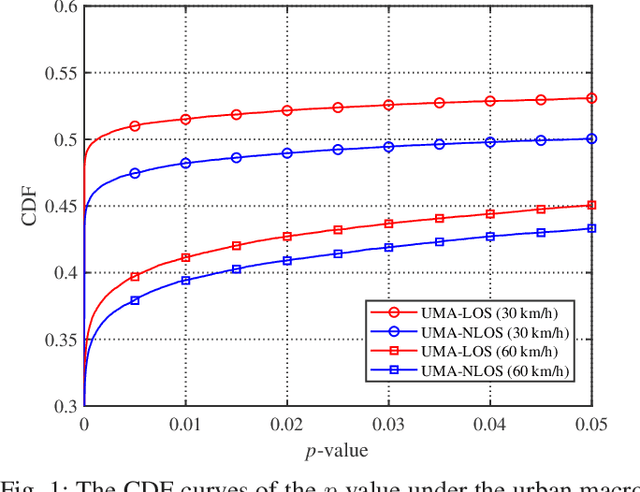
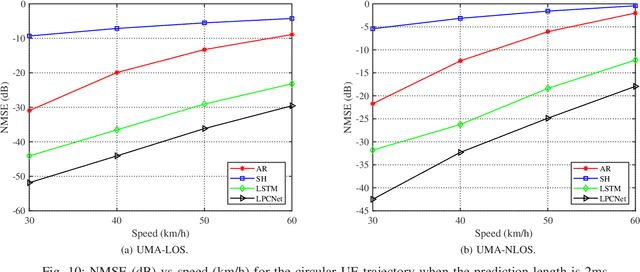
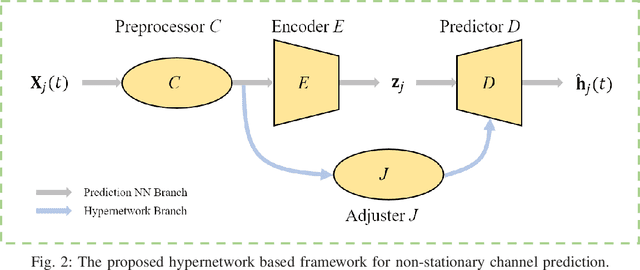
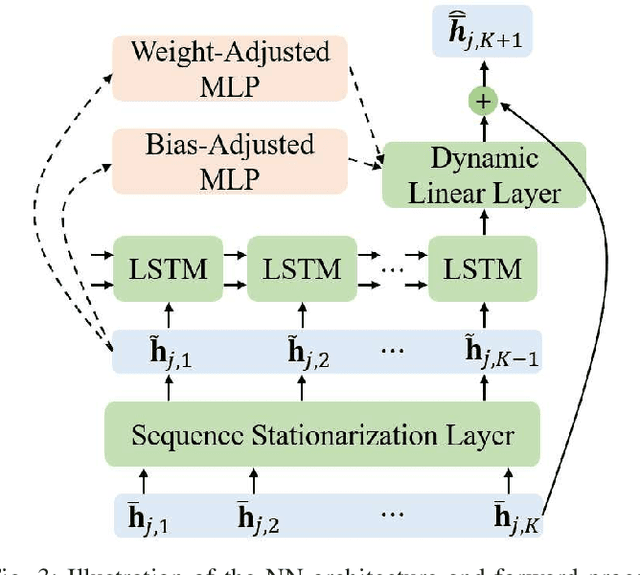
Abstract:In order to break through the development bottleneck of modern wireless communication networks, a critical issue is the out-of-date channel state information (CSI) in high mobility scenarios. In general, non-stationary CSI has statistical properties which vary with time, implying that the data distribution changes continuously over time. This temporal distribution shift behavior undermines the accurate channel prediction and it is still an open problem in the related literature. In this paper, a hypernetwork based framework is proposed for non-stationary channel prediction. The framework aims to dynamically update the neural network (NN) parameters as the wireless channel changes to automatically adapt to various input CSI distributions. Based on this framework, we focus on low-complexity hypernetwork design and present a deep learning (DL) based channel prediction method, termed as LPCNet, which improves the CSI prediction accuracy with acceptable complexity. Moreover, to maximize the achievable downlink spectral efficiency (SE), a joint channel prediction and beamforming (BF) method is developed, termed as JLPCNet, which seeks to predict the BF vector. Our numerical results showcase the effectiveness and flexibility of the proposed framework, and demonstrate the superior performance of LPCNet and JLPCNet in various scenarios for fixed and varying user speeds.
Exact Decomposition of Joint Low Rankness and Local Smoothness Plus Sparse Matrices
Jan 29, 2022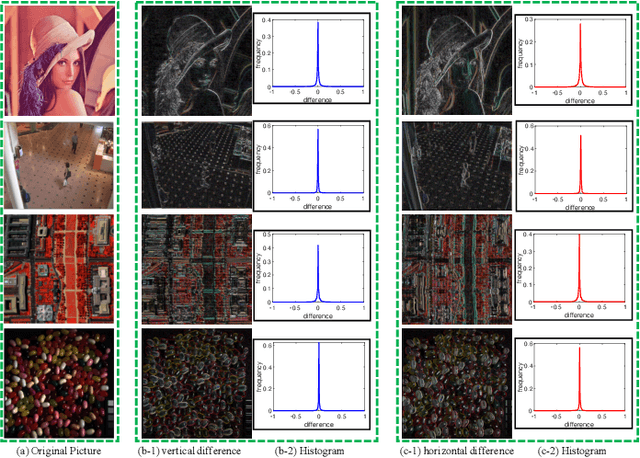
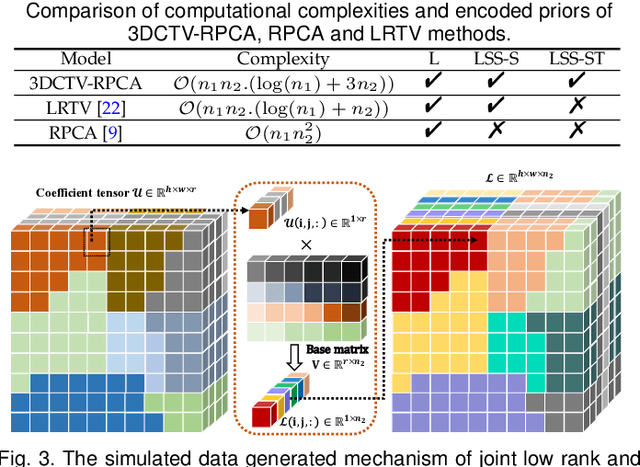

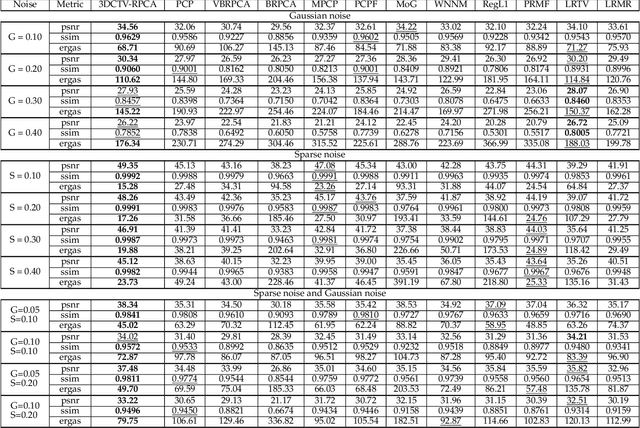
Abstract:It is known that the decomposition in low-rank and sparse matrices (\textbf{L+S} for short) can be achieved by several Robust PCA techniques. Besides the low rankness, the local smoothness (\textbf{LSS}) is a vitally essential prior for many real-world matrix data such as hyperspectral images and surveillance videos, which makes such matrices have low-rankness and local smoothness properties at the same time. This poses an interesting question: Can we make a matrix decomposition in terms of \textbf{L\&LSS +S } form exactly? To address this issue, we propose in this paper a new RPCA model based on three-dimensional correlated total variation regularization (3DCTV-RPCA for short) by fully exploiting and encoding the prior expression underlying such joint low-rank and local smoothness matrices. Specifically, using a modification of Golfing scheme, we prove that under some mild assumptions, the proposed 3DCTV-RPCA model can decompose both components exactly, which should be the first theoretical guarantee among all such related methods combining low rankness and local smoothness. In addition, by utilizing Fast Fourier Transform (FFT), we propose an efficient ADMM algorithm with a solid convergence guarantee for solving the resulting optimization problem. Finally, a series of experiments on both simulations and real applications are carried out to demonstrate the general validity of the proposed 3DCTV-RPCA model.
 Add to Chrome
Add to Chrome Add to Firefox
Add to Firefox Add to Edge
Add to Edge